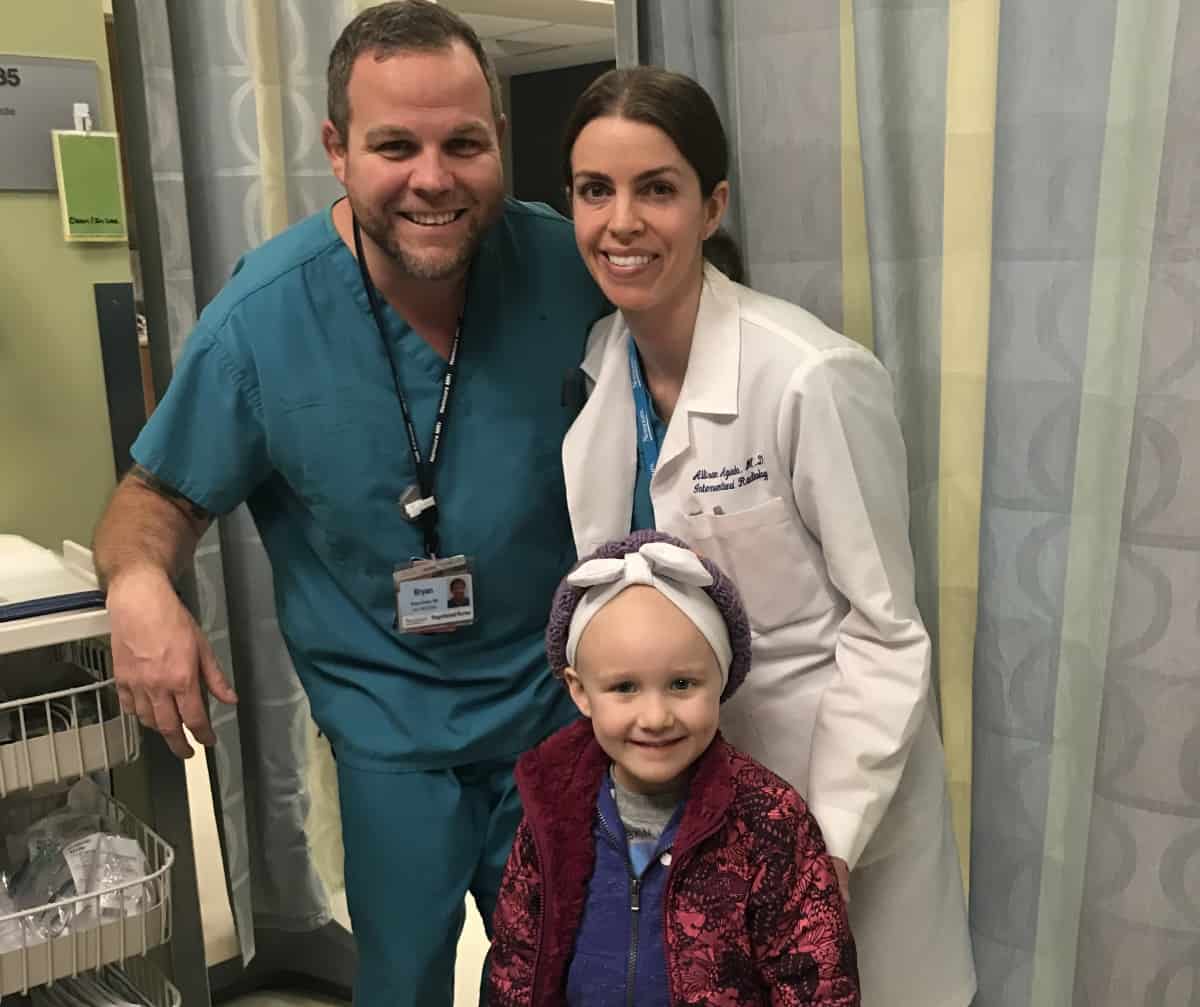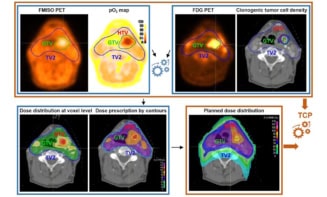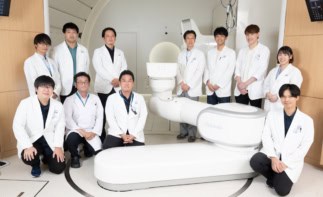
Transarterial radioembolization with yttrium-90 (TARE-Y90) — a treatment that delivers high doses of radiation directly to the tumour — shows promise for treating children with inoperable, chemotherapy-resistant liver cancer. The approach can help improve survival time for such patients, or shrink the tumour to enable surgical resection or liver transplant (Pediatr. Blood Cancer 10.1002/pbc.27510).
TARE-Y90 uses an image-guided catheter to deliver microspheres impregnated with the radioisotope Y-90 directly to the tumour sites, via a tiny incision in the groin. Y-90 emits high-energy beta particles that travel extremely short distances (2.5 mm on average) in tissue and induce direct cytotoxic destruction to their target. TARE-Y90, which is approved by the US Food and Drug Administration for adults with liver cancer, thus delivers high radiation doses to the tumour while sparing normal surrounding tissue.
“When chemotherapy fails, additional treatment options for children with non-surgical liver cancers are limited and not very effective,” says lead author Allison Aguado, an interventional radiologist at Nemours/Alfred I duPont Hospital for Children, one of the few locations in which paediatric patients can receive this therapy. “TARE-Y90 has the potential to offer children with the hardest to treat liver cancer a treatment that is less toxic than current options and could facilitate a cure.”
Aguado and colleagues performed a retrospective review of 10 children between two and 18 years old with primary liver cancer treated with TARE-Y90. All patients had previously been treated unsuccessfully with chemotherapy and had no curative surgical options, but did have preserved liver function.
Each child was treated with Y-90 in one or two sessions and received doses of up to 192 Gy. Patients were generally observed overnight before being discharged. This regime is in distinct contrast to external-beam radiation, which delivers typical total doses of 36–54 Gy, fractionated into 20–30 treatments. Five patients experienced no side-effects from TARE-Y90, whilst the others had mild effects including fatigue and fever.
Following TARE-Y90 treatment, seven patients showed temporary disease control and two demonstrated a partial response. Median survival after TARE-Y90 was four months (range, 2–20 months). Retreatment was well tolerated in three patients, with these three demonstrating the longest survival times (17–20 months). One child exhibited a robust response and was able to receive a transplant six weeks after TARE-Y90 treatment.
The authors concluded that TARE-Y90 could be considered as adjunctive therapy in paediatric patients with unresectable liver cancers, and could be used as a bridge to surgery or liver transplant. They note that more research is required to determine the efficacy of this treatment in children and to understand which patients would likely benefit the most.
“TARE-Y90 should be considered effective and feasible for children with liver cancers and has the potential to be used earlier in treatment, alongside chemotherapy, to help reduce tumour size to provide better surgical treatment options and improved prognosis,” says Aguado.



